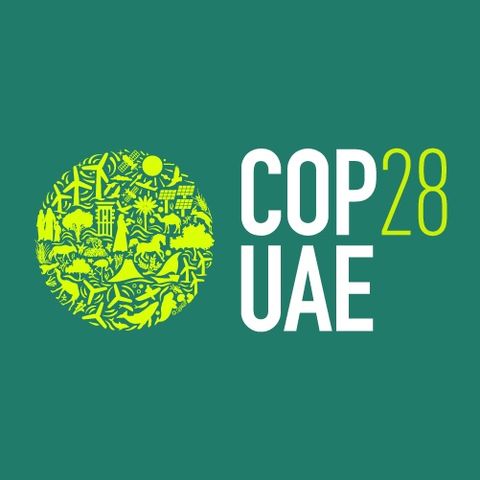Navigating the Water-Food Nexus in the Age of Climate Change

Regístrate gratis
Escucha este episodio y muchos más. ¡Disfruta de los mejores podcasts en Spreaker!
Descarga y escucha en cualquier lugar
Descarga tus episodios favoritos y disfrútalos, ¡dondequiera que estés! Regístrate o inicia sesión ahora para acceder a la escucha sin conexión.
Descripción
Navigating the Water-Food Nexus in the Age of Climate Change As the world's leaders gather at COP28, the urgent issue of climate change's impact on crucial resources like water and...
mostra másAs the world's leaders gather at COP28, the urgent issue of climate change's impact on crucial resources like water and food takes center stage. The water-food nexus, which encapsulates the complex relationship between water availability and food production, is of paramount importance now more than ever.
Understanding the Water-Food Nexus
This nexus is deeply interconnected with socio-economic factors and is further complicated by rapid population growth and climate change. Agriculture consumes approximately 70% of the world's freshwater, primarily for crop irrigation and livestock. Simultaneously, these agricultural activities can degrade water quality and deplete groundwater, creating a cycle of resource scarcity.
Climate Challenges to the Nexus
Climate change is a disruptive force affecting this delicate balance. Rising temperatures, unpredictable rainfall, and extreme weather events directly influence both water availability and agricultural productivity. These climatic variables exacerbate food and water insecurities, especially in regions with limited capacity to adapt.
Innovations for a Resilient Nexus
COP28 offers a platform to discuss and showcase innovative technologies and sustainable practices aimed at balancing this nexus. One such breakthrough is AI-driven precision agriculture, a technology that amalgamates machine learning, computer vision, and data analytics to optimize farming operations:
AI-Enabled Efficiency: Smart irrigation systems utilize AI algorithms that rely on sensors to monitor soil moisture and weather data, thereby optimizing water use. These technologies significantly enhance water efficiency and make farming more sustainable.
Predictive Analytics: AI-driven predictive models assist in forecasting crop water requirements by integrating historical data, weather patterns, and crop information. These insights help in fine-tuning irrigation schedules, ultimately leading to better water management.
Remote Sensing Technologies: Satellite and drone-based remote sensing offer unparalleled capabilities in monitoring crop health and environmental factors. AI algorithms process this data to detect patterns related to water use, enabling more targeted irrigation practices.
Yield Optimization and Footprint Reduction: AI-powered agriculture optimizes water use, reducing agriculture's overall water footprint and increasing yield. This efficiency is vital as the world grapples with water scarcity and the looming threat of food insecurity.
The water-food nexus is a complex but crucial topic demanding immediate action, especially in the age of climate change. Innovations and insights presented at COP28 provide a roadmap for achieving a more balanced and sustainable relationship between water and food. As we venture into this uncertain future, it's clear that technology will play an indispensable role in steering us towards sustainability and resilience.
Información
| Autor | Quiet.Please |
| Organización | William Corbin |
| Página web | - |
| Etiquetas |
Copyright 2024 - Spreaker Inc. an iHeartMedia Company
